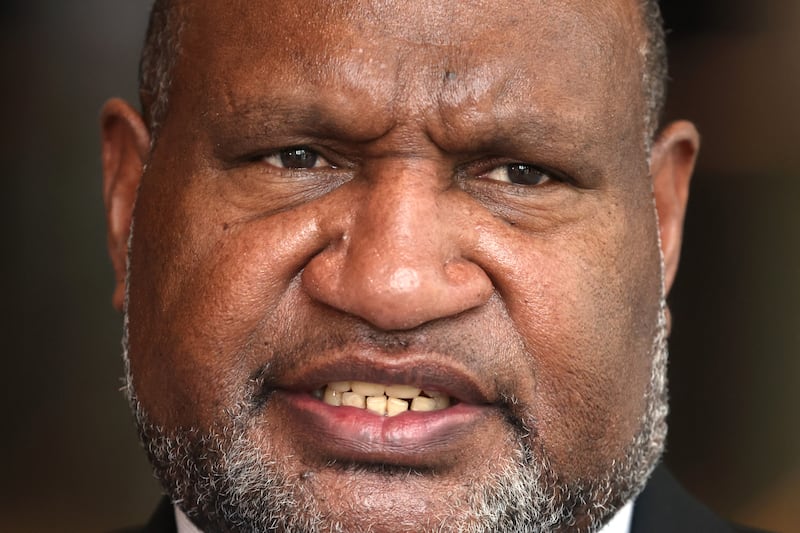A two-week state of emergency imposed in Papua New Guinea’s capital after 16 people died during rioting and looting on Jan. 10 won’t be extended and Australia’s assistance, though offered, wasn’t needed to restore law and order, the Pacific island country’s prime minister said Thursday.
Prime Minister James Marape told a press conference that an inquiry will be held into the police force and the failure of its chain of command in the capital Port Moresby. The city was engulfed by chaos after its police stopped work to protest a cut in the pay of government employees that was purportedly caused by a payroll system glitch.
The inquiry, to be headed by a judge, will also look at ways to better empower police “to truly be the police men and women you are supposed to be instead of becoming again an enemy to the state that employs you,” Marape said.
“I want to reboot our police force asap,” he said.
The government is also looking at a law change, Marape said, that would give more authority to the country's small defense force to step into any vacuum left by police as well as financial assistance for businesses that are reeling from losses caused by the looting and arson.
The violence “greatly tarnished” Papua New Guinea’s image overseas and it will take some years to restore the economy, said Paul Barker, director of Papua New Guinea’s Institute of National Affairs.
“The images that have gone out abroad show PNG is a dangerous place to invest in. It discourages investors especially in the adventure tourism industry and other hospitality industries,” he said.
In response to a journalist’s question, Marape said neighboring Australia had offered assistance during the “mayhem” in Port Moresby but he had believed that the “majority” of good officers in the police force would handle the situation and that most people in the city would remain law-abiding.
“So I said I don’t see any need for outside intervention,” he said.

Papua New Guinea is the most populous Pacific island country with an estimated 12 million people and endowed with significant mineral and other resources. But it has struggled to develop economically because of corruption, poor infrastructure, frequent tribal violence and deep inequality for women.
It has one police officer for about every 1,800 people, nearly four times less than the level recommended by the United Nations to ensure law and order, according to a Griffith Asia Institute report released last year. The ratio of police to people has declined substantially in the past half century as Papua New Guinea’s population tripled.
The country is increasingly the focus of China-United States rivalry for influence in the Pacific. It signed a wide-ranging defense cooperation agreement with the United States last year that could bolster the U.S. military presence in the region but doesn’t help the country address challenges such as tenuous law and order and grinding poverty.
A police statement on Wednesday said 16 people died in Port Moresby during the Jan. 10 unrest, which also spread to Lae, an industrial center. Some were shot during the looting and others burned to death in supermarkets and other business premises that were set alight.
The statement said a concerted effort will be required to “resolve” the crimes of Jan. 10.
“As a police officer, I feel remorseful over this unfortunate and tragic event, but we have a duty to perform, and we must pick up the pieces and move on in life," said Assistant Commissioner of Police Peter Guinness.
Marape reshuffled his Cabinet after the violence and increased the number of ministries, which might help him survive a possible no confidence vote when Parliament resumes in February.
“Obviously the reshuffle is to get more politicians to side with the government but new ministries cost more money and at this time the money needs to be going to core functions to restore the economy,” said Barker.
